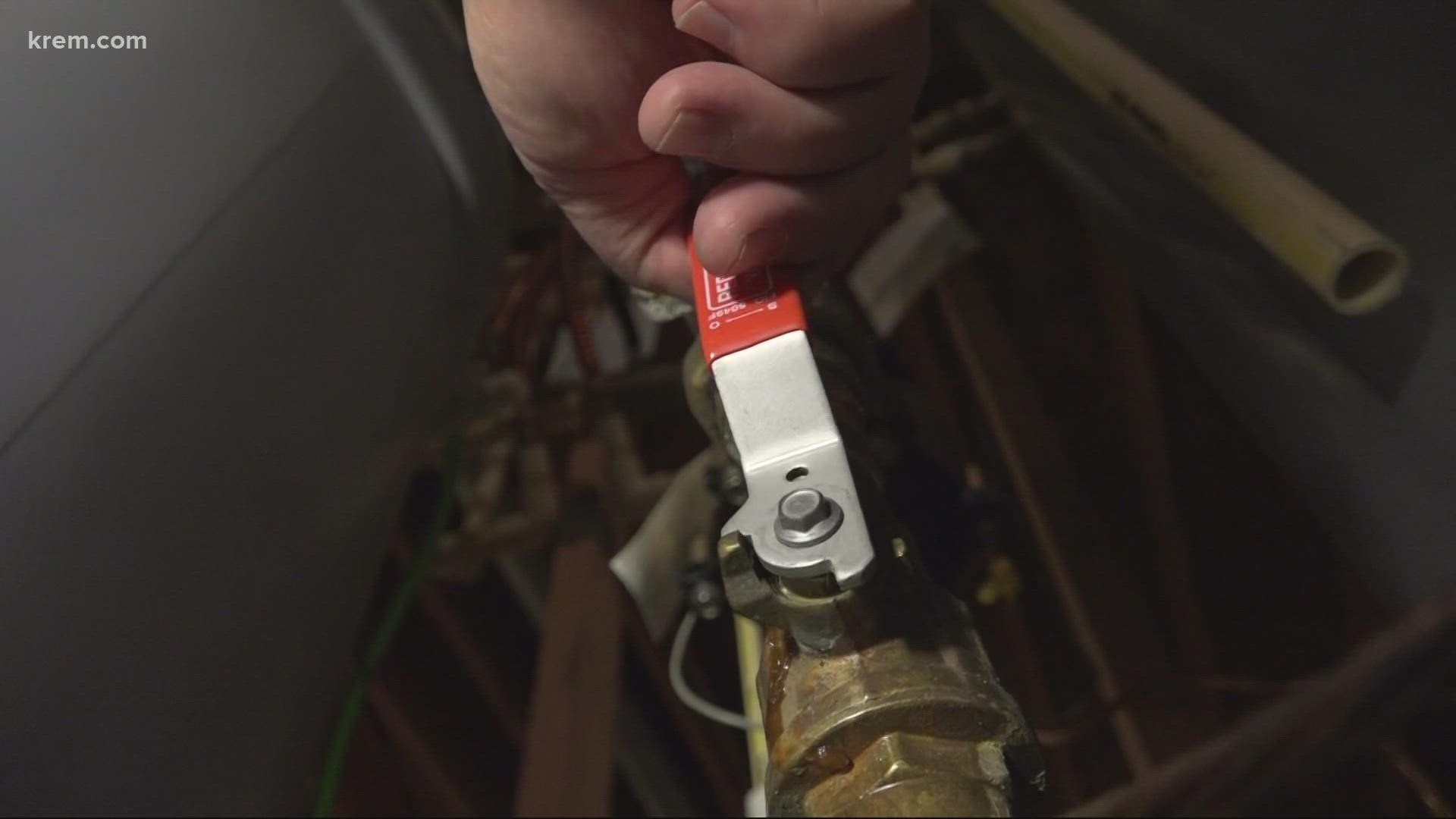SPOKANE, Wash. — As temperatures in the forecast for the Inland Northwest are predicted to be below normal after Christmas Day, the City of Spokane Water Department is advising residents to keep their water pipes safe.
The department is asking residents to follow some safety tips to protect their homes and health before and after the cooler temperatures arrive.
Plumbers say if your pipes freeze, you'll notice the water pressure in your sink or shower drop dramatically. In some cases you won't have any running water at all and it can cause major damage to your home if a pipe bursts.
"If the basement is finished, you don't know what's going on until the damage is done. It ruins the sheet rock, the framing, the flooring, grandma's piano, anything that's down in that area is going to be ruined," said Bulldog Rooter Plumber Chris Allen.
Bulldog Rooter says even though they're busy, they have enough staff on hand to respond to emergency calls the same day.
Here is how people can prevent home pipes from freezing in cold weather:
- Let the people living in the house know where the main water shutoff valve is located in case an emergency occurs.
- Disconnect hoses from outside faucets.
- Ensure water pipes in unheated parts of your home, including crawl spaces, are insulated.
- Seal all openings in the basement around the foundation, windows, and doors.
- Insulate all pipes in your basement that are near windows.
- Drain all underground irrigation systems.
Here is how you can protect water pipes during freezing weather:
- Ensure you heat all rooms of your house that have plumbing fixtures, as water pipes in unheated rooms are subject to freezing and could cause extensive damage.
- Leave the cabinet doors open to allow the heat from the room to enter if you have pipes that are located on an outside wall.
- Keep meter box lids closed during winter to prevent cold air from freezing the meter. Don’t remove snow if you don’t have to, it helps insulate the meter.
- If you have previously experienced problems during freezing periods and you have exhausted all other solutions, you can leave a trickle of water running from the faucet highest in the house. This trickle should be a steady stream slightly larger than the lead of a pencil.
If your water pipes are frozen, here is what you need to know:
- Never thaw a frozen pipe with an open flame as it may start a fire.
- You should use hot air from a hair dryer, the exhaust from a vacuum cleaner, heat lamps, heat tape, or electric heaters to thaw a frozen pipe.
- Consider using an incandescent lightbulb to thaw pipes slowly by placing it next to frozen pipes.
- Keep the bulb away from combustible material to avoid starting a fire.

